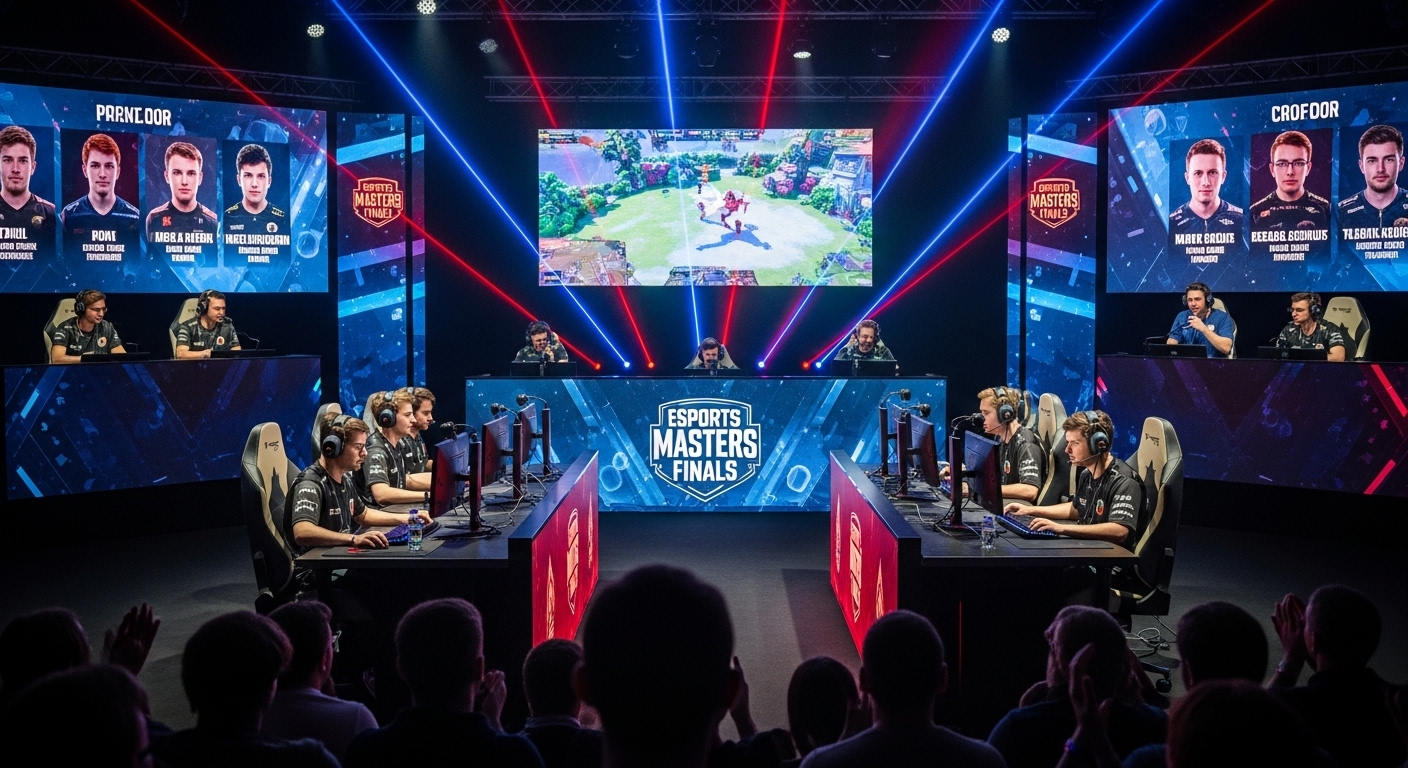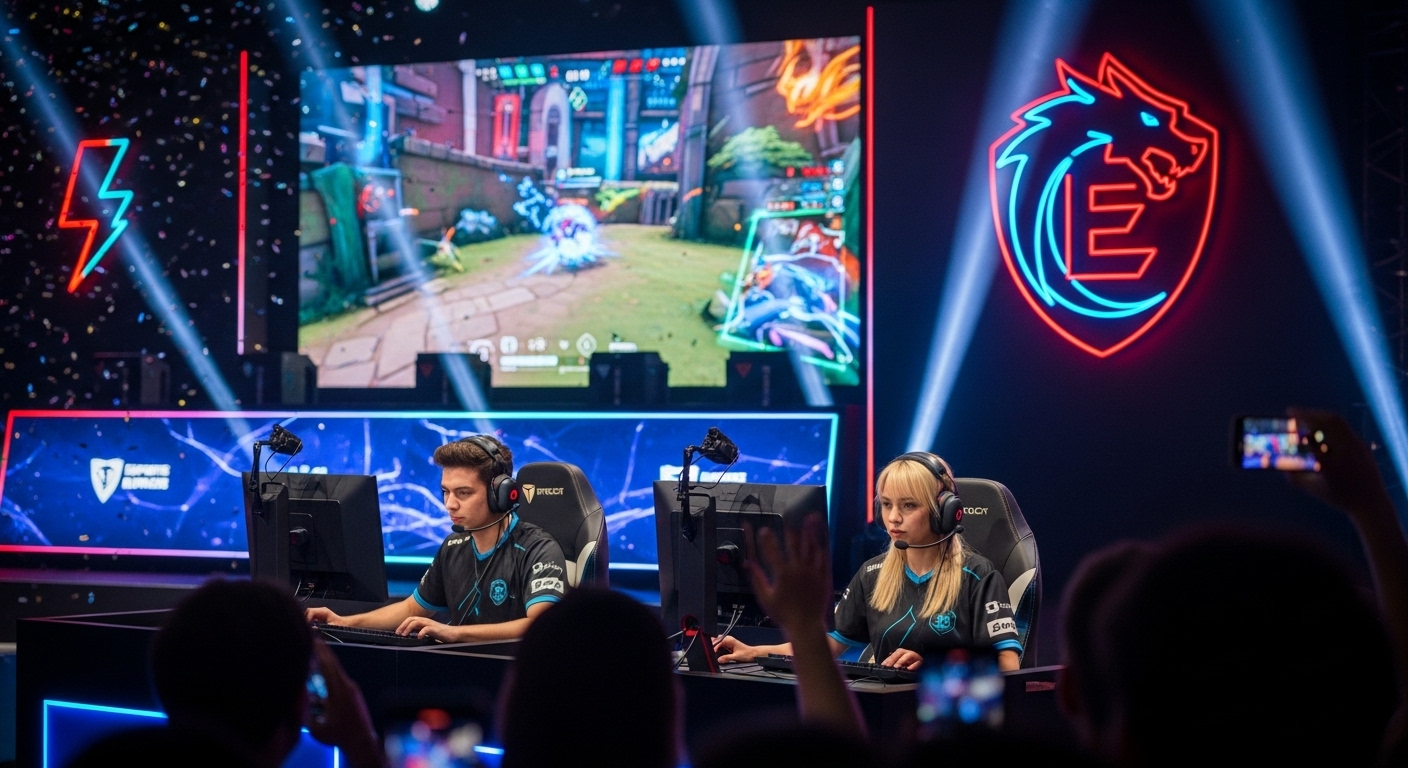Electronic sports, widely known as eSports, have grown from a niche hobby into a global phenomenon that rivals traditional sports in terms of popularity, revenue, and cultural impact. With millions of players, fans, and investors worldwide, eSports has become a legitimate arena of competition where skill, strategy, and teamwork determine success. Unlike traditional sports, eSports emphasizes mental agility, reflexes, and strategic thinking, proving that competitive excellence does not always require physical exertion. This blog explores the origins, development, major games, professional organizations, culture, economics, and future of eSports, offering a detailed perspective on this rapidly evolving industry.
The Early Beginnings of eSports
The story of eSports begins in the late 1970s and early 1980s, when arcade games became a cultural phenomenon. Early competitive gaming focused on high-score competitions in titles like Space Invaders, Pac-Man, and Donkey Kong. Players competed for prestige and recognition within local communities, often gathering in arcades to test their skills against one another. The 1980 Space Invaders Championship is widely regarded as one of the first large-scale competitive gaming events, drawing thousands of participants and showcasing the potential of organized gaming competitions.
During the same period, home gaming consoles emerged, allowing multiplayer gaming in living rooms and small gatherings. These early competitions were informal, but they established a foundation for modern eSports by emphasizing practice, skill, and social interaction. Players began to understand the importance of strategy, timing, and consistency, all of which remain crucial elements in professional gaming today.
The Expansion of Competitive Gaming in the 1990s
The 1990s represented a turning point for eSports as personal computers became more common and internet connectivity allowed for online multiplayer gaming. Games like Doom, Quake, and Warcraft introduced networked play, enabling players to compete across local and global networks. LAN parties, where gamers brought computers together for competitive play, became popular social events and helped build close-knit gaming communities.
South Korea emerged as a pioneering nation in professionalizing eSports during this period. The real-time strategy game StarCraft became a national obsession, and televised tournaments attracted massive audiences. Professional players gained celebrity status, and sponsorships provided financial support for teams and events. South Korea’s model demonstrated that competitive gaming could be a sustainable profession, setting a standard for the global eSports industry.
The Role of Streaming Platforms
The emergence of streaming platforms revolutionized eSports by making it accessible to a global audience. Platforms like Twitch, YouTube Gaming, and Facebook Gaming allowed players to broadcast live gameplay, enabling millions of viewers to watch in real time. This created a new form of spectator sport, where audiences could learn strategies, follow their favorite players, and engage directly through chat and commentary.
Streaming also opened opportunities for professional gamers to monetize their skills. Fans could support players through subscriptions, donations, and merchandise, creating direct connections between players and audiences. Streaming platforms transformed eSports from a niche activity into a global entertainment medium, fostering community engagement and enhancing the visibility of competitive gaming.
Popular eSports Game Genres
eSports encompasses a variety of game genres, each attracting different audiences and requiring unique skills. First-person shooters (FPS) such as Counter-Strike Global Offensive, Call of Duty, and Overwatch emphasize precision, reflexes, and teamwork. Players must coordinate strategies, execute complex maneuvers, and maintain focus under high-pressure conditions.
Multiplayer online battle arena (MOBA) games, including League of Legends and Dota 2, focus on long-term strategy, resource management, and coordination. Players must make split-second decisions while managing multiple objectives, creating high-stakes, tactical gameplay that demands both individual skill and team cohesion.
Fighting games like Street Fighter and Super Smash Bros. emphasize timing, reflexes, and individual skill, while sports simulation games such as FIFA and NBA 2K replicate real-world athletic competition. Battle royale games like Fortnite and PUBG combine survival elements with strategy, providing unpredictable and fast-paced competitive environments. The diversity of game genres allows eSports to appeal to a wide range of players and audiences globally.
Professional eSports Organizations
Professional eSports organizations operate similarly to traditional sports teams. They recruit talented players, provide coaching staff, and invest in facilities, equipment, and training resources. Organizations such as Cloud9, Fnatic, Team Liquid, and T1 manage rosters across multiple games, ensuring that their players are prepared for both regional and international competitions.
Players often sign contracts that provide salaries, bonuses, and sponsorship opportunities. Sponsorship plays a critical role in funding teams and tournaments, with brands recognizing the marketing potential of eSports’ highly engaged audience. Professional organizations provide stability and structure, helping players focus on improving their skills and achieving competitive success.
Major eSports Tournaments
Tournaments are the cornerstone of the eSports ecosystem, offering recognition, prize money, and global exposure. Events like The International for Dota 2, the League of Legends World Championship, and the Overwatch League Finals attract millions of viewers worldwide. Prize pools for these tournaments often reach tens of millions of dollars, highlighting the scale and importance of professional gaming.
Regional leagues, including North America’s LCS and South Korea’s LCK, provide consistent competitive opportunities and help develop local talent. These leagues feed into international tournaments, creating a multi-tiered competitive structure. Tournaments feature professional production, live commentary, and fan engagement activities, merging entertainment with sports competition and enhancing the global appeal of eSports.
eSports Culture and Community
The culture surrounding eSports is diverse, vibrant, and inclusive. Fans actively engage in online communities, social media discussions, fan art creation, and cosplay events. Conventions and tournaments provide spaces for fans to celebrate games, characters, and professional players, fostering community identity and belonging.
eSports culture values skill, strategy, and dedication. Professional players are admired for their tactical intelligence, reflexes, and perseverance. Celebrity gamers inspire new players and help build a global fanbase. The inclusive nature of eSports allows individuals from different backgrounds, countries, and abilities to participate, creating a worldwide community united by a shared passion for gaming.
Economic Impact of eSports
The eSports industry has a substantial economic impact, generating revenue through sponsorships, media rights, merchandise, ticket sales, and streaming partnerships. Analysts estimate that the global eSports market is worth billions and continues to grow at a rapid pace.
Brands invest heavily in eSports marketing to engage a young, tech-savvy audience. Universities offer scholarships and programs to support competitive gaming, while educational institutions develop curricula around game design, marketing, and digital media. The economic ecosystem mirrors traditional sports, supporting players, teams, event organizers, media companies, and investors, solidifying eSports as a significant industry.
Education and eSports
Educational institutions increasingly recognize eSports as a platform for skill development and career opportunities. Universities and colleges offer competitive gaming scholarships, team programs, and dedicated facilities. Academic programs integrate game design, technology management, digital media, and marketing, preparing students for careers in the eSports ecosystem and broader gaming industry.
eSports promotes accessibility, allowing individuals of different physical abilities to compete equally. This inclusivity fosters diverse talent and helps the global industry continue to expand. Students gain valuable experience in teamwork, strategic planning, and problem-solving, making eSports both an educational and competitive pursuit.
Health and Wellness in eSports
Professional eSports requires significant mental and physical preparation. Players train for hours daily, analyzing gameplay, developing strategies, and coordinating with teammates. Extended periods of gaming can lead to eye strain, repetitive stress injuries, and mental fatigue.
To address these issues, professional organizations emphasize physical exercise, ergonomic setups, mental health support, and nutrition. Maintaining a healthy balance is crucial for sustaining long-term performance. Awareness of wellness challenges reflects the maturation of eSports and the increasing professionalism of players and teams.
Technological Innovations in eSports
Technology is central to the growth of eSports. High-performance computers, gaming peripherals, and high-speed internet enable competitive play at professional levels. Emerging technologies, including virtual reality, augmented reality, and artificial intelligence, are enhancing gameplay, training, and spectator experiences.
AI-driven coaching and performance analysis tools provide insights into player strategies, optimizing practice and improving competitive performance. Advanced broadcasting technologies enhance viewing experiences with live statistics, multiple camera angles, and interactive overlays. Technological innovation continues to push the boundaries of competitive gaming, ensuring that eSports remains at the forefront of entertainment and technology.
Global Reach of eSports
eSports is a global phenomenon, with professional leagues, tournaments, and fan communities spanning continents. Asia, Europe, North America, and South America have all contributed to the expansion of competitive gaming. Countries such as South Korea and China are recognized as eSports powerhouses, while North America and Europe host major leagues and international tournaments.
Global connectivity enables players to compete across borders, share strategies, and engage with international communities. Online platforms create opportunities for cultural exchange and collaboration, demonstrating that eSports is more than a competition; it is a worldwide social and cultural network.
The Future of eSports
The future of eSports is bright, with continued growth expected in both participation and revenue. Emerging technologies, including virtual reality, augmented reality, and AI, will redefine gameplay and enhance the spectator experience. International expansion will introduce competitive gaming to new regions, creating opportunities for players, fans, and investors.
Integration with traditional sports, mainstream media, and educational institutions will continue to strengthen the legitimacy and cultural impact of eSports. Personalized content, interactive viewing experiences, and innovative tournament formats will ensure sustained engagement and growth.
eSports as a Cultural Phenomenon
eSports represents a cultural shift in entertainment and competition. It combines technology, creativity, social interaction, and strategy, reflecting modern society’s values and innovation. eSports demonstrates that hobbies can evolve into professional industries with economic, educational, and social significance.
The community of players, fans, and content creators ensures that eSports remains dynamic, inclusive, and globally connected. It bridges geographic, cultural, and social boundaries, illustrating the transformative power of digital platforms in building worldwide communities centered around shared passion and skill.
Conclusion
From arcade competitions to international tournaments with multi-million-dollar prize pools, eSports has grown into a major global industry with cultural, economic, and entertainment significance. Millions of players and fans participate in a thriving ecosystem of professional teams, leagues, and streaming platforms.
eSports offers opportunities for skill development, education, community engagement, and career growth. It challenges traditional notions of sport while fostering creativity, strategy, and technological innovation. The rise of eSports demonstrates that competition, passion, and professional achievement can thrive in digital environments, making it a defining force in contemporary culture.
With technological advancements, global expansion, and increased professionalization, eSports is poised to continue shaping entertainment, community, and competition for decades to come. It is not merely a pastime but a cultural phenomenon, a professional pursuit, and a symbol of the transformative power of gaming in the digital age.




